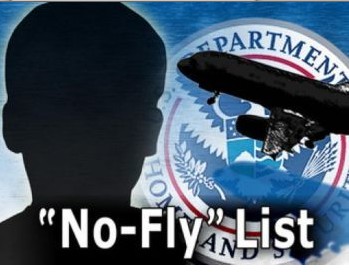A federal court took a critically important step towards placing a check on the government's secretive No-Fly List. In a 38-page ruling in Latif v. Holder, the American Civil Liberties Union's (ACLU) challenge to the No-Fly List, U.S. District Court Judge Anna Brown recognized that the Constitution applies when the government bans Americans from the skies. She also asked for more information about the current process for getting off the list, to inform her decision on whether that procedure violates the Fifth Amendment guarantee of due process.
The ACLU represents 13 Americans who are blacklisted from flying. At oral arguments in June on motions for partial summary judgment, the ACLU asked the court to find that the government violated its clients' Fifth Amendment right to due process by barring them from flying over U.S. airspace – and smearing them as suspected terrorists – without giving them any after-the-fact explanation or a hearing at which to clear their names.
The court's opinion recognizes – for the first time – that inclusion on the No-Fly List is a draconian sanction that severely impacts peoples' constitutionally-protected liberties. It rejected the government's argument that No-Fly list placement was merely a restriction on the most "convenient" means of international travel.
According to the court, placement on the No-Fly List is like the revocation of a passport because both actions severely burden the right to international travel and give rise to a constitutional right to procedural due process.
The realistic implications of being on the No-Fly List are potentially far-reaching. For example, the Terrorist Screening Center [TSC] shares watchlist information with 22 foreign governments and United States Customs and Border Protection makes recommendations to ship captains as to whether a passenger poses a risk to transportation security, which can result in further interference with an individual's ability to travel as evidenced by some Plaintiffs' experiences as they attempted to travel abroad by boat and land and were either turned away or completed their journey only after an extraordinary amount of time, expense, and difficulty.
Accordingly, the Court concludes on this record that Plaintiffs have a constitutionally-protected liberty interest in traveling internationally by air, which is affected by being placed on the list.
The court also found that the government's inclusion of the Plaintiffs on the No-Fly List smeared them as suspected terrorists and altered their ability to lawfully board planes, resulting in injury to another constitutionally-protected right: freedom from reputational harm.
The importance of these rulings is clear. Because inclusion on the No-Fly List harms the Plaintiffs’ liberty interests in travel and reputation, due process requires the government to provide them an explanation and a hearing to correct the mistakes that led to their inclusion. But under the government's "Glomar" policy, it refuses to provide any information confirming or denying that the Plaintiffs are on the list, let alone an after-the-fact explanation and hearing.


A federal court took a critically important step towards placing a check on the government’s secretive No-Fly List.






